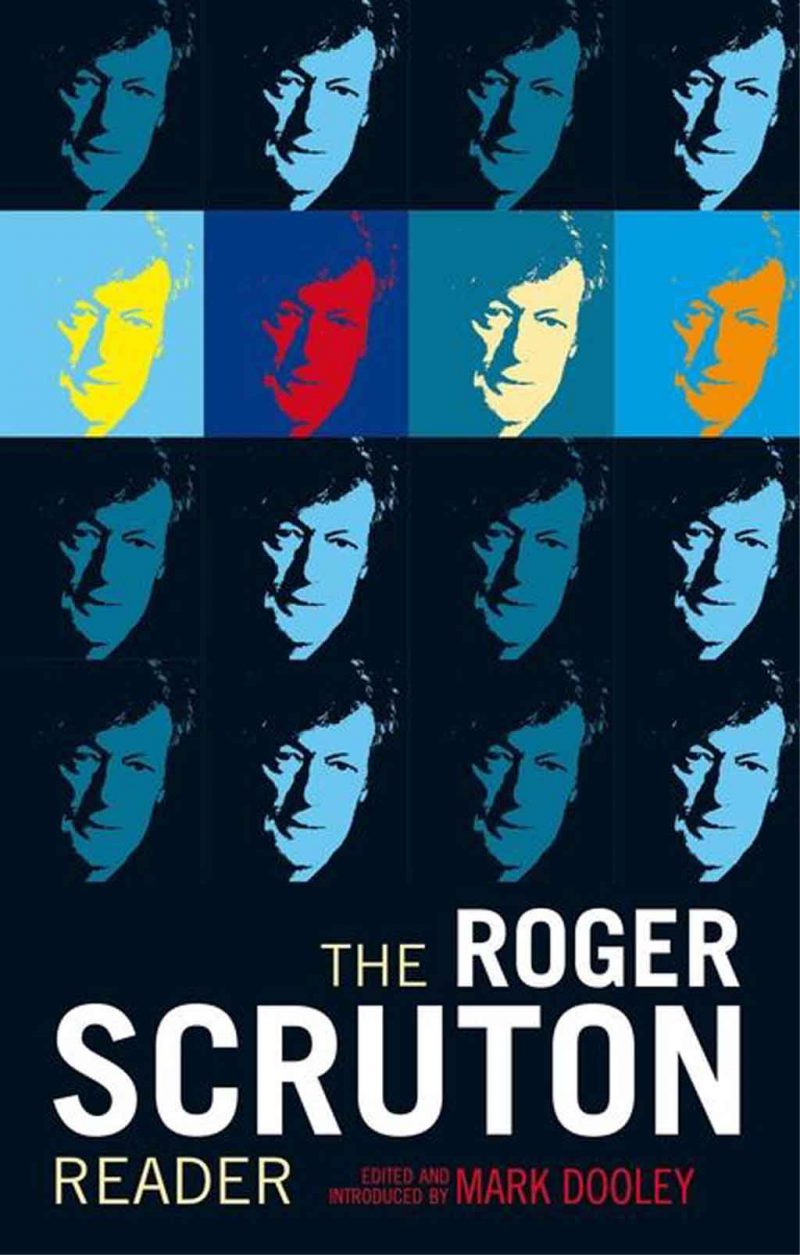The Roger Scruton Reader by Mark Dooley (2009)
The Roger Scruton Reader
by Mark Dooley
256 pages, Bloomsbury Academic, $22
The Roger Scruton Reader compiles edited texts from different publications under the guidance of editor Mark Dooley. The collection highlights a common thread underlying Scruton’s treatment of diverse topics: what Dooley refers to as a philosophy of love, referring accurately to the main driving force in Scruton’s manner of thinking and discussing, which never fails to be gentle and kind, hard as that may be to understand for those who care only about ideological virtue signalling.
The Reader draws from the several dozen books published by Scruton throughout his lifetime. Dooley makes a point of noting the volume of this output, arguably as a sign of intellectual abundance on Scruton’s part. Experience, and the example of the most profound genius among writers throughout history would see, to signal that quantity seldom maintains quality. Furthermore, unless the writer in question possesses a technical expertise in the specific subjects he is commenting on, and the more he relies on his philosophical prowess, the more likely it is for there to be redundancy and superficiality.
If we narrow down what Dooley describes as Scruton’s philosophy of love, we can see the concepts of home and sensuality play a central role. There is a caveat regarding these two words when used in this context, and that is that they must be understood from the point of view of the transcendent, the ideal, and the sacred; that is, the numinous. Exploring these two concepts specifically Scruton delves slowly and tenderly into all areas in which they may be found, discovering how and to what extent they are relevant to the human experience.
Scruton excels in writing about aesthetics in general, especially architecture and to a lesser extent music, as well as in the subjects of personal love for another, in mind and body, and the love of place, specifically the place we call “home.” Here it is pertinent to highlight Scruton’s fondness for Marcel Proust, whose influence can be felt in the work of Scruton in both its sensibility and writing.
The farther away we get from the personal, the more fallible Scruton appears, the more provincial and contingent his arguments appear. This results in most of his books being little more than collections of articles better suited to newspaper or magazine editorials than a book of philosophy. See, for instance, his “Green Philosophy.” And so, it is when subjects require a colder calculation, and a wider consideration beyond the personal and the subjective that Scruton shows obvious shortcomings in articulately disguised leaps of faith. This is most patent in his weakly argued endorsement of hunting as a recreational sport, which boils down to stubborn attachment to the customs of a false aristocracy, a bourgeois aristocracy.
To be sure, being provincial and highly subjective has its own value, and that is directly connected to the experience of what and how we love and perceive each other and our surroundings. This is also why Scruton is especially suited to undermine the nonsensical Left by addressing their thinly veiled irrationalism, answering it with clarity and his own appeals to the basic human experience. What Scruton presents in these cases is a Conservatism for the care of culture and environment.
The heights of Scruton’s thought, which we will not honor with the word philosophy, are reached in those moments when he endorses and explains classicism. Classicism as immortality, as beauty, as an exposition of the living as the bridge between the dead and the unborn. That, too, fits within a sense of “home,” meaning the place where we feel safe in the continuity between past and present that lets us know what we must do to thrive in that civilization.
In this sense, Scruton provides a link between his many influences and a rallying-point for those who see modernity for the ugliness that it is, but in my view, it still lacks something that a whole philosophy would have. Nonetheless, The Roger Scruton Reader provides an invaluable toehold for someone trying to find a way to climb out of modernity to fresher skies above.
Tags: aesthetics, classicism, home, roger scruton










